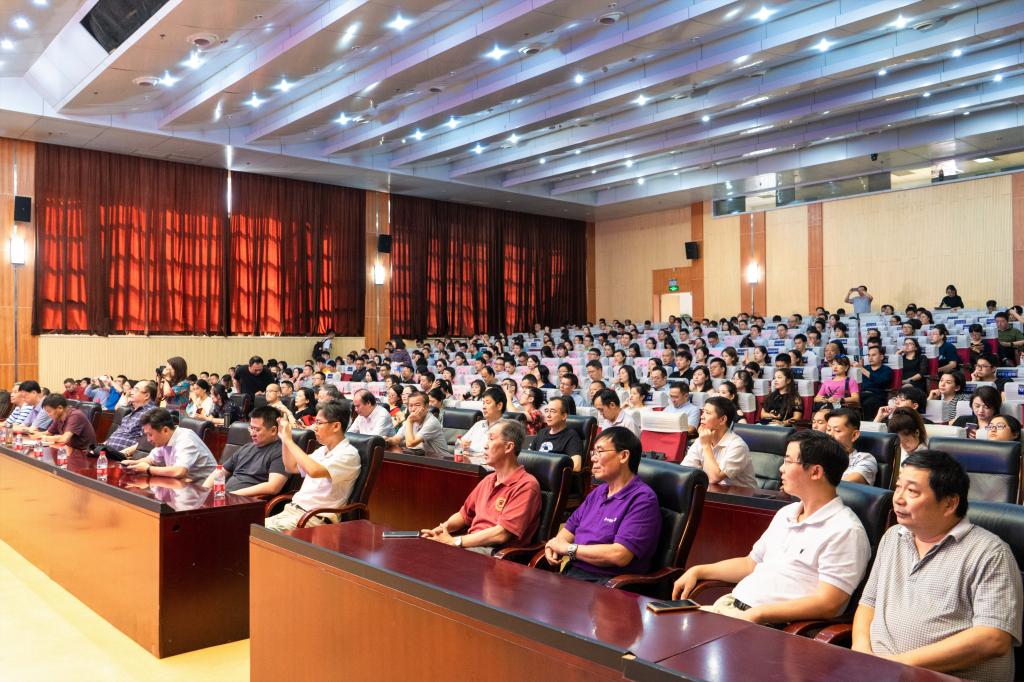(Article by Bie Mingwei, a reporter and photo by Ren Ruobing and Feng Jiaxing from the Press and Publicity Center of the School of Management) On the afternoon of September 26, the ideological and political class on the theme of "Pioneers set sail" was held in the lecture hall of the School of Management. The keynote speaker of this lecture is Ms. Chen Zhufang, the former Secretary of the Party Committee and Deputy Dean of Huawei. Chen Zhufang once served as the Secretary of Party General Branch and Executive Deputy President of the School. With the theme of "From experience to observation--Huawei in my mind", she gave a lecture to all the teachers of the School of Management and representatives of bachelor, master, doctor, MBA and EMBA. The lecture was presided over by Jin Lingzhi, Party Secretary of the School.
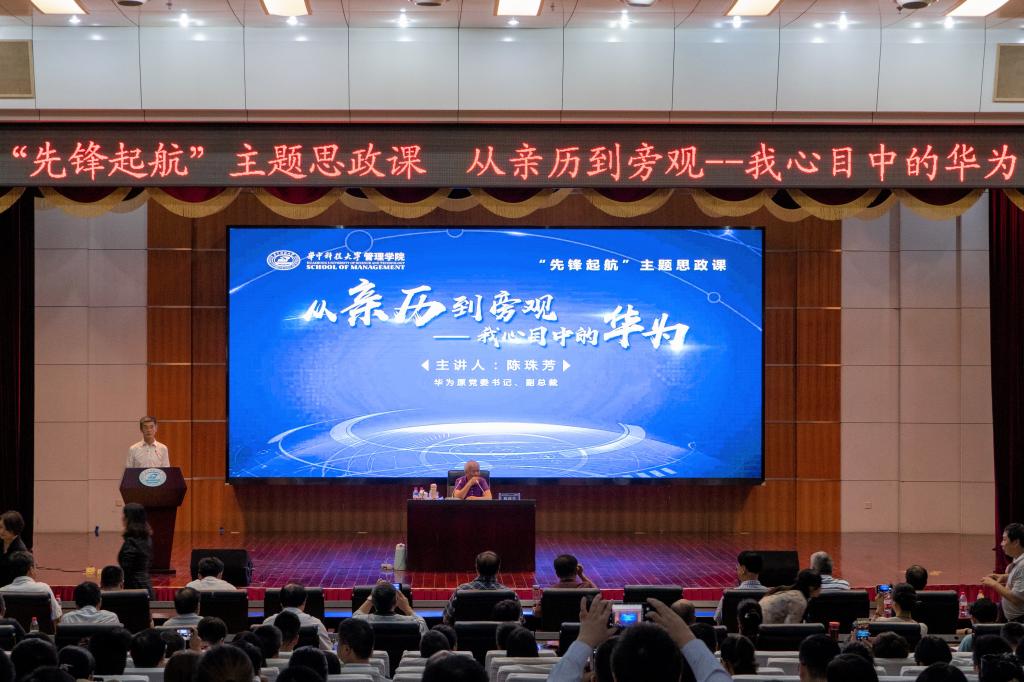
At the beginning of the lecture, Jin Lingzhi introduced Chen's career in commercial warfare, and Wang Zongjun, the Dean of the School, presented her with a letter of appointment entitled "Senior Consultant for Alumni Work of the School of Management". Chen recalled the experience of joining Huawei: "In 1995, I coached in-service postgraduate human resources courses at the School of Management. President Ren Zhengfei asked Zheng Baoyong ( one of the entrepreneurs of Huawei, also an alumnus of Huazhong University of Science and Technology) to call me and asked me to take charge of personnel work at Huawei." She also said that Mr. Ren hoped she could make Huawei dock with universities better, draw on the wisdom of universities, and attract young talents from universities: Establishing joint laboratories with colleges and universities would transform the wisdom of colleges and universities into market value. "I want the universities of the highest quality in China to be Huawei's human resource pools," he said. Chen recalled that it was the first time she had heard an entrepreneur talk about turning a university into a human resource pool for his own business. She could not tell whether it was a bragging or a proclamation, but in the end, Huawei turned it into a reality.
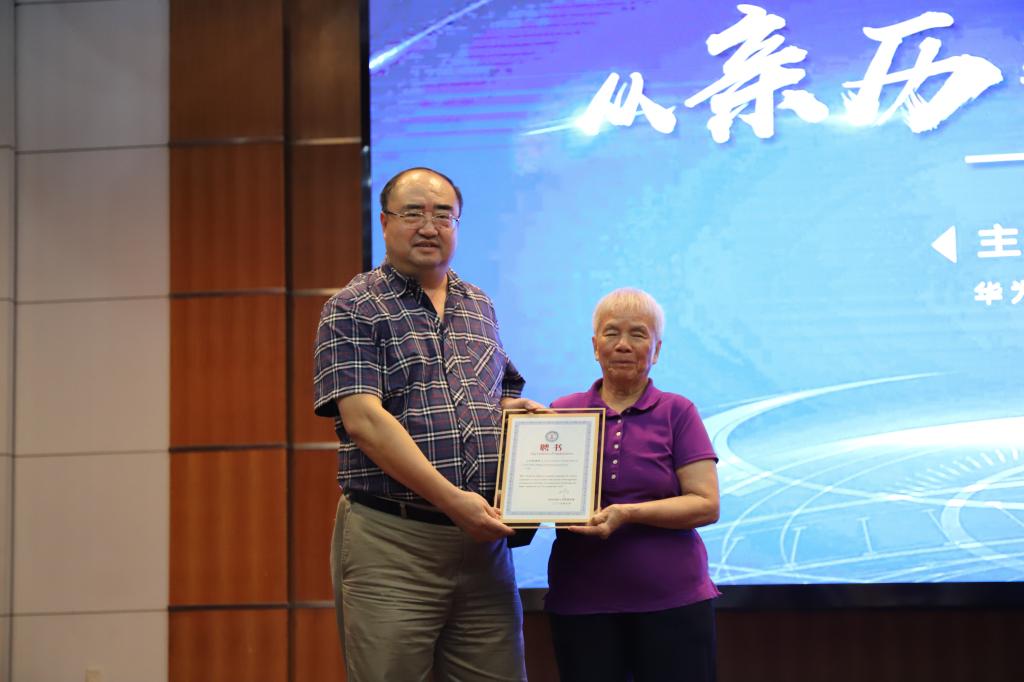
Then, she shared with the faculty and students her experience of working in Huawei for decades. When talking about Huawei's corporate culture and core values, Ms. Chen said the company had no policy advantages at the start of its existence as a private high-tech company and was belittled by western clients. Without relying on outside help, she opened up her own path and created her own core competitiveness, and the spirit of hard and diligent working was integrated into the blood of Huawei and became a part of the corporate culture. She believed that in the process of enterprise values took root, middle-level cadres played a vital role, they connected the broadest grass-roots staff and senior managers. The most successful form of corporate values was to let every employee use their own story to explain it. After the initial sense of excitement dissipated, sense of responsibility and mission would continue to encourage us to struggle. At the same time, Chen Zhufang also cautioned the students present: "'Learning without thinking is reckless, thinking without learning is perilous', and we should develop the habit of reading more. Students majored in subjects of social science should use spare time to read more technical books, while students majored in the subjects of science and natural sciences need to read more humanities books. We should achieve mastery through a comprehensive study to understand the structure of the business. ”
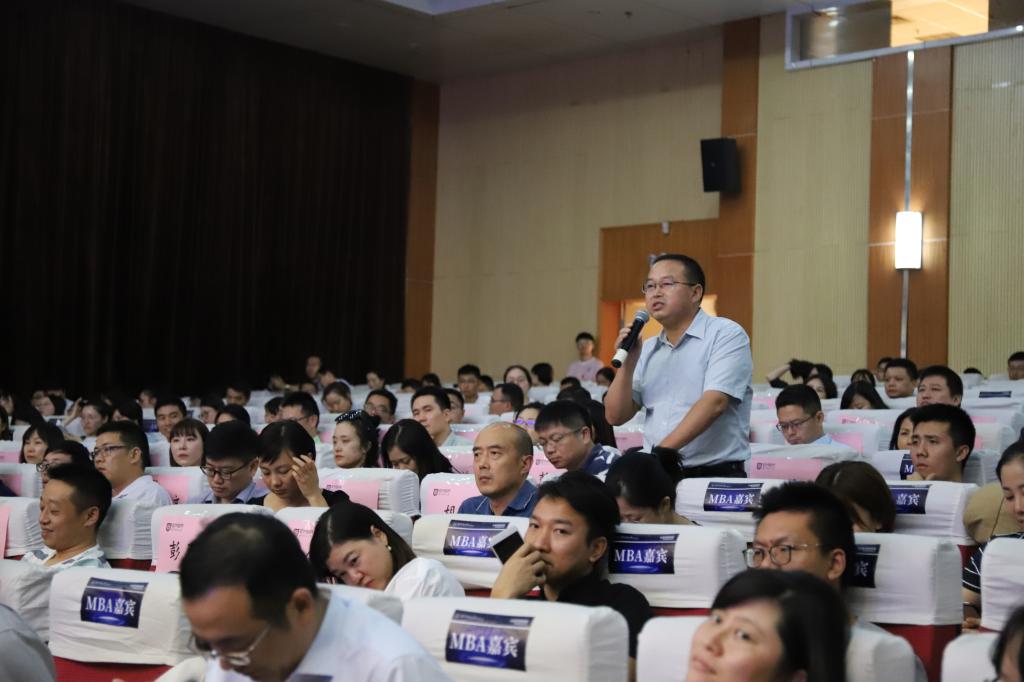
In the question exchange, combined with the current situation, business management and professional development, students came up with questions enthusiastically, Chen Zhufang patiently answered one by one. The students present asked: "How to manage talents efficiently and get out of the predicament of brain drain?" Chen said Huawei had also experienced brain drain in the early days of her start-up. When she first joined Huawei, there were more than 1700 job numbers with only 800 employees. In her view, the company's continuous development is the best way to retain talent, and the company must make employees feel that the company owns a bright future. "I met a lot of retired Huawei employees after I retired. They might have complained when they first left, but when we were together again, everyone approved Huawei. So it is important to have a thriving career," Chen said.
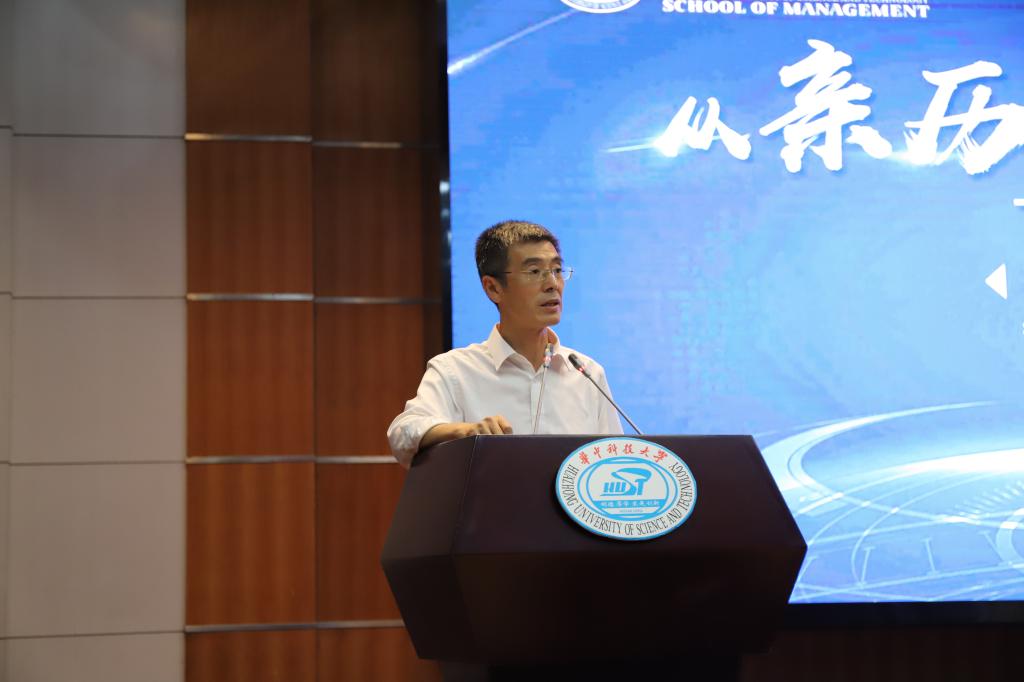
Finally, Jin Lingzhi summed up the lecture: "Today's Ideological and Political class is a superb feast for our management practice and a cultural feast for our management thoughts. Ms. Chen's rich learning and working experience has made us truly realize that learning without thinking is meaningless and learning without thinking is perilous. There is no end to learning." Secretary Jin encouraged the faculty and students present to adhere to the spirit of Huazhong University of Science and Technology, which is "dare to be the first in the world, dare to compete, be good at transformation," and make continuous efforts for the development and construction of the School.
